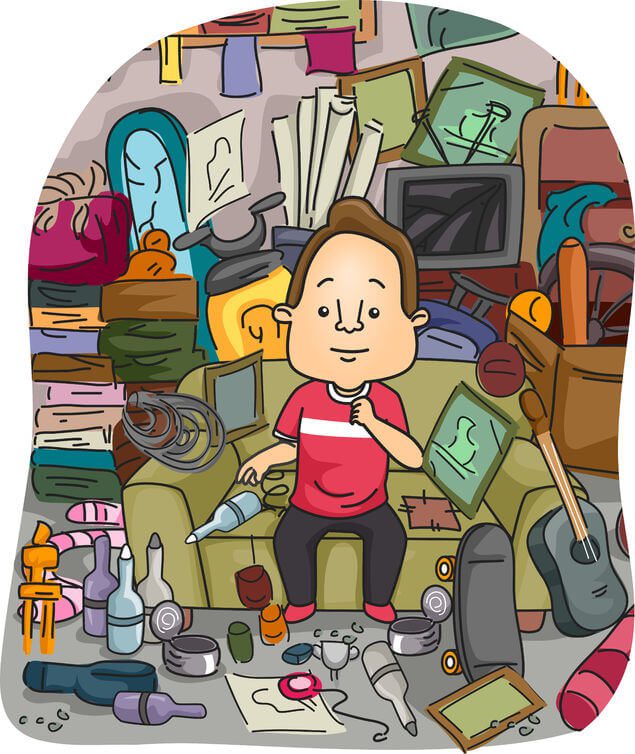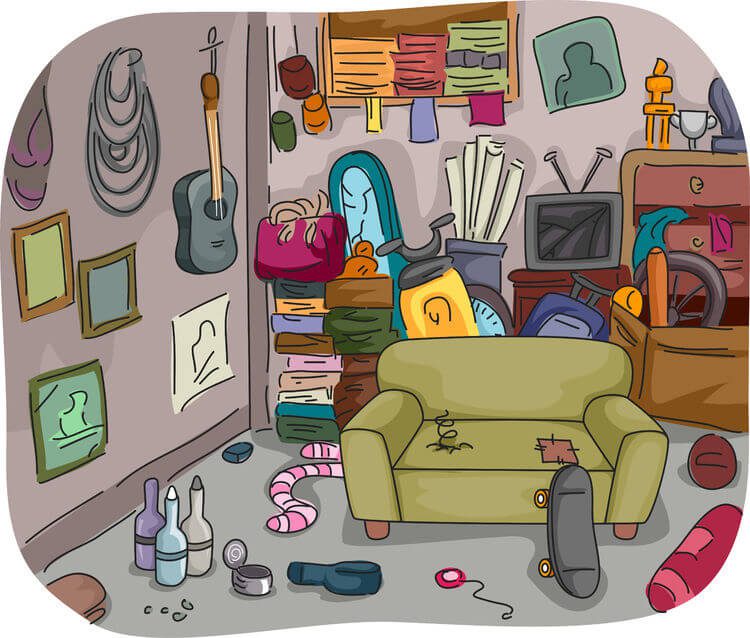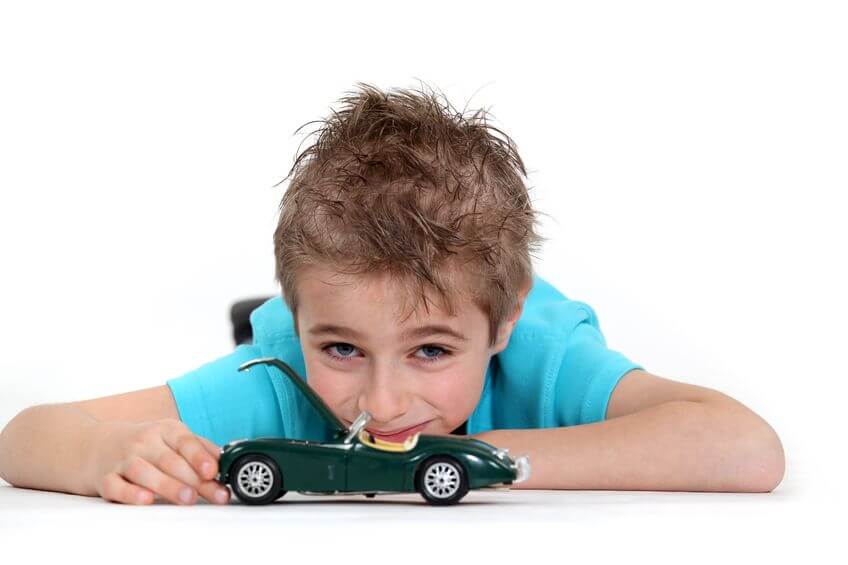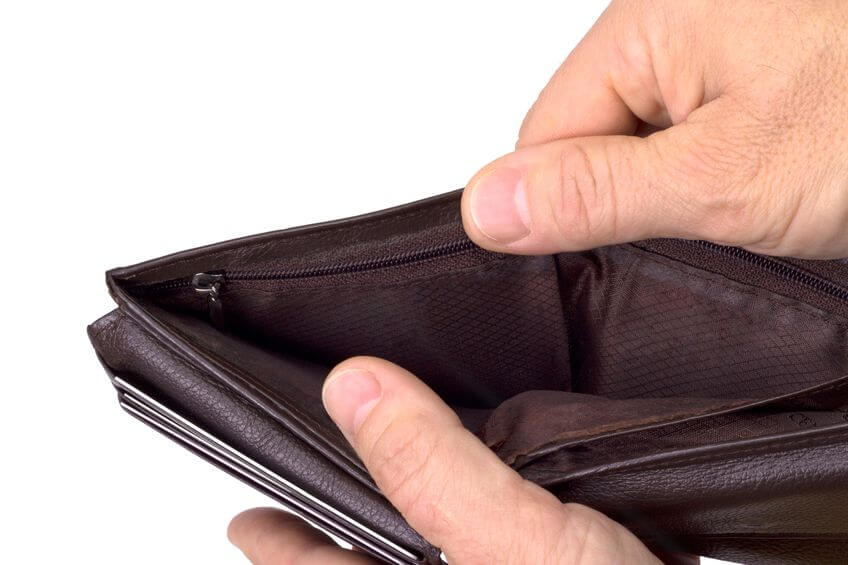10 Clear Signs of Hoarding Disorder You Shouldn’t Ignore
Clutter isn’t always just clutter. For some, owning excessive items isn’t simply collecting—it’s a sign of something deeper: hoarding disorder. Understanding those signs early can empower you (or someone you care about) to seek the right help and reclaim a healthy, functional home.

by TheLorry on 13 August 2025.
You may have someone you know who likes to collect certain types of things in their house. It can be shoes, figurines, or some other tiny trinkets. These collectors will usually find joy with having these items around.
But if you know someone who likes to ‘collect’ things that are widely considered as junk or even trash, then that person could possibly be a hoarder. It has been found that 1 in 50 people in Singapore showed hoarding behaviour in a study in 2010.
Hoarding can be a debilitating habit as it will interfere with a person’s day-to-day activity and ultimately, their quality of life. This obsessive-compulsive anxiety disorder can exist in anyone.
Therefore, identifying if yourself or any of your friends or family may like to hoard can really be of help, especially if it’s on at earlier stage.
As such, there are a few signs we can look for in a person to see whether yourself or anyone you know could be a hoarder.
What Is Hoarding Disorder?
Definition & Diagnostic Context
Hoarding disorder is a recognized mental health condition marked by persistent difficulty discarding possessions, regardless of their actual value, and excessive acquisition. This behavior causes severe clutter that compromises living spaces and interferes with daily life and well-being
Why It Matters: Health & Safety Risks
Living amidst clutter isn’t just inconvenient—it can be dangerous:
-
Physical Hazards & Fire Risks
Clutter makes cleaning nearly impossible, encouraging rodent or insect infestations, increasing fire hazards, and blocking necessary exits. -
Sanitation & Structural Dangers
Unsanitary conditions invite pests, mold, and decay. Plumbing and electrical systems can suffer damage from debris, and clutter blocks safe maintenance access. -
Mental & Community Impact
Isolation, anxiety, and stress often spiral in hoarding households. Even neighbors can suffer, with microbial and vermin outbreaks potentially spreading nearby.
10 Hidden Signs You Might Be a Hoarder
| Sign | What It Looks Like |
|---|---|
| 1. Collecting without practical reason | You hold onto items—even junk—without obvious use. Keepsakes and collections differ by being well-maintained and meaningful. Hoarders often feel shame, leading to hidden clutter. |
| 2. Items hidden or strewn about | Clutter often gets hidden in spare rooms or spread randomly through common areas, making homes increasingly difficult to navigate. |
| 3. Difficulty discarding items | Attempts to clear clutter cause emotional distress or anger. You feel attached to items—imagining they’ll be needed one day. |
| 4. Obsessive thoughts about possessions | Constant worry over losing items or fear of discarding something “important” leads to anxiety around cleaning. |
| 5. Paranoid about others touching your clutter | You anxiously guard possessions—allowing others to move or touch them feels threatening. |
| 6. Early hoarding-like behavior | Childhood tendencies to excessively collect things (toys, cards, rocks) may evolve into hoarding in adulthood. |
| 7. Pre-existing anxiety or social fear | Hoarding can become a coping mechanism for deep-seated anxiety or social discomfort. |
| 8. Social withdrawal due to clutter | You avoid inviting friends or family due to embarrassment over your living conditions, leading to increasing isolation. |
| 9. Financial difficulties arising | Impulsive purchases of unique or obscure items—even with limited functionality—can strain budgets and accumulate clutter. |
| 10. Decline in physical health | Clutter creates unhygienic environments that attract pests and mold, leading to illnesses and chronic health issues. |
Many of these signs reflect deeply rooted emotional attachments and anxiety patterns, not mere untidiness.
Real Stories, Real Impact
Qualitative interviews in a multi-ethnic Asian urban context revealed the intense personal significance hoarded items can carry—offering emotional comfort, memories, and a sense of control. But those under study also described profound isolation, family strain, and high stigma when confronted with the mess.
1. You collect things without any practical reason
The extremity of the condition had already been seen in Singapore, where it has instigated disturbance among the neighbours as seen from the 66 year-old hoarder two years ago.
As mentioned earlier, a person who takes pride in their collection of items cannot be considered as a hoarder. Collectors will usually keep their items on display in the house, and keep them in pristine condition.
A hoarder on the other hand, will usually feel embarrassed about their collecting habits. Some may stock up on random things for no apparent reason, other than feeling they may need it someday.
Collecting seemingly useless things around the house is a typical sign of a hoarder, and serious hoarders can affect their lives and the lives of the people living with them greatly.
Yet for some, it doesn’t escalate to a debilitating level. So it is good to know whether you or any of your friends or family has a slight, harmless hoarding habit — and how it could escalate to a debilitating state.
2. You don’t display the items, rather hiding them or putting them haphazardly around the house.

As hoarders tend to feel embarrassed about their habits, most of the time the junk they have collected are hidden in unused rooms in the house. A spare bedroom, the storeroom, and the rarely used bathroom even, can be places for these things to be collected.
This ‘collection’ will overtime takes over other spaces in the house, and will soon clutter walkways, living rooms, and bedrooms.
Again, a milder form of the habit can also be seen in some. Maybe a friend has an annoying quirk of keeping the boxes of all the electronics he ever bought. They may not be a full-blown hoarder, but they do have the tendencies.
It may be advantageous to keep an eye on yourself and see whether the habit would ever escalate and may hinder your daily activities in any way. Be more vigilant is key.
3. You have difficulty in getting rid of the items
On top of collecting seemingly useless items en masse and feeling embarrassed about it, the absolute refusal to get rid of the things is a clear sign of hoarding.
Hoarders will always get attached to the items they hoard. They may believe that their possession will be useful in the future, have a certain sentimental value, are irreplaceable, or simply like to have them around.
Attempts to get rid of the things may provoke anger and annoyance, which greatly affects the relationship between friends and family.
4. You have obsessive thoughts about possessions

Instances where this factor has been identified is commonly between spouses or roommates who live together.
If you feel that you or your partner/roommate is afraid of running out of useless items in the house and always thinking of needing them later, that is another sign of being a hoarder.
Additionally, a more extreme sign of a hoarder can be seen where there’s a fear of accidentally throwing out the wrong trash. The item is still trash, but for some reason he or she might be afraid of losing it.
The fear of losing their possession is why clutter exists.
5. You feel paranoid of other people touching your clutter
This usually correlates to hoarders being obsessive towards the junk collected. As you may feel scared of losing the items, you will feel much more scared when someone were to touch or replace your collection.
6. You have a hoarding-like childhood habit

An article which told a story of an American man with serious hoarding habits may suggest the habit may stem from childhood quirks.
This is by far the earliest signs of hoarding tendencies one can look for in a person. Whether a child loves to excessively collect certain type of toys, cards, or even rocks, it is possible for it to amplify when the child gets older.
7. You have pre-existing anxiety
Another factor of someone turning to hoarding is because of their social anxieties. It was found that some started collecting things because they were too scared to socialise, and view their hoarding as a hobby.
Some also started collecting weird and unusual trinkets as a way to easily initiate a conversation with friends who would come over.
8. You tend to shut people down
It has become ironic for people with anxiety who thought their hoarding habits was to make them more social. The mounts of useless things they collect affects them in such a way that they will feel ashamed to actually invite people over.
This leads to them closing their doors to any friends and family who might be coming to visit. In a way, the destructive habit fuels their anxiety further.
9. You have financial difficulties

Though by far not a fool-proof indicator of someone may be a hoarder, many of the reported hoarding cases found that the person are in deep debt.
This is because many of the people who hoard are likely compulsive buyers, though most of the time they things they buy are seemingly useless, or has minimal functionality.
Some of them are obsessed with finding the most unique and specific item that they could be spending a fortune to just have it.
10. Your state of health is depleting
Perhaps one of the most substantial hazard for hoarders to inflict onto themselves is the decreasing cleanliness of their homes. Given that most of the items hoarders collect will end up as clutter, the mess will attract hazardous pests such as cockroaches or mice.
Hence, if you do feel ill a lot lately, or if you have someone you know continually coming to work or school with decreasing state of health, there is a possibility.
Get some help!
Hoarding can be a serious habit one can develop, as it may affect our health and well-being. Moreover, a house full of unsanitary clutter can also affect the neighbours.
So if you think you have some of these indicators, or if you have a family member, friend, or a neighbour you find to have the same thing — perhaps try to be open to help. Alternately, you can be the supporting force to tackle the problem in someone else.
With proper intervention (and therapy sessions if needed), this debilitating habit can be managed. Plus, you could use a good lorry renting service to dispose of the clutter. But only once you or the person is ready to let it go.
What to Do: Insight, Action, and Empathy
-
Acknowledge & assess
Recognizing signs is the first step. People with hoarding disorder often lack awareness of the problem. -
Seek professional help
Cognitive Behavioral Therapy (CBT) is the gold standard, helping individuals identify the compulsions behind hoarding and aiding structured decluttering. -
Supportive multi-agency intervention works
In one case in London, collaboration among mental health professionals and environmental teams helped a woman declutter gradually and safely, through trust-building and patient-paced support. -
Engage mental health and social support
Therapists, support groups, and outreach teams—like Singapore’s Hoarding Task Force—offer structured pathways toward recovery, using education, outreach, and compassionate help.
Lean on TheLorry When You’re Ready
When decluttering becomes overwhelming, professional help matters. TheLorry’s Disposal Service is a trusted, local solution to safely remove clutter and pave the way for healing.
Have questions or ready to start the process?
Engage with Empathy & Knowledge
-
Randomly tossed boxes or items may hint at something deeper, an emotional or psychological struggle.
-
This disorder is real and treatable. Awareness, professional help, and trusted support networks make a difference.
-
Reaching out whether you’re the one hoarding or a loved one, can start a transformative journey toward wellness.
Internal Links for Further Reading
1. Why It Is Important to Get to Know Your Neighbor ASAP After Moving In
Strong community ties can make it easier to spot and address hoarding early. This article explores how knowing your neighbors can foster trust, encourage mutual support, and make it easier to seek or offer help in times of need—whether you’re new to an area or simply looking to build better relationships.
2. How to Turn Tight Spaces into a Cosy Home
If you or someone you know is tackling clutter, learning to maximize small spaces can be a game-changer. This guide offers creative storage solutions, smart design tips, and organization strategies to transform cramped or cluttered rooms into inviting, functional living spaces.
3. How to Choose the Correct Lorry Type and Size When Renting a Lorry
Decluttering often means moving large quantities of items—whether for storage, donation, or disposal. This article explains how to select the right lorry type and size for your needs, ensuring that your move or clean-out is both cost-effective and efficient.
In Summary, hoarding disorder isn’t about being messy. It’s a complex, treatable condition woven with fear, attachment, and often shame. Watch for warning signs, lean into professional assistance, and trust that change is possible. Starting small—one empathetic conversation, one decluttered corner—can lead to a more spacious, healthier life.
Frequently Asked Questions (FAQ)
What is hoarding disorder?
How does hoarding disorder develop?
Is hoarding disorder treatable?
Who can develop hoarding disorder?
Where to book a decluttering or disposal service?
How much does hoarder cleaning cost?





 MY – EN
MY – EN Singapore
Singapore Indonesia
Indonesia